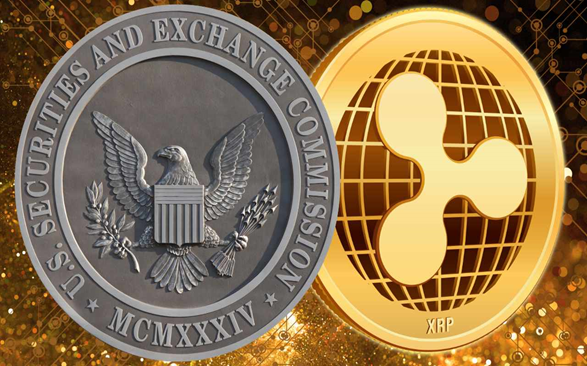by Jude Ayua
In the ongoing regulatory overhaul in the US cryptocurrency sector under Trump’s second administration, the Federal Deposit Insurance Corporation (FDIC) and the Consumer Futures Trading Commission (CFTC) have announced plans to ease crypto regulations. The FDIC will now allow banks to deal with crypto customers while the CFTC has doubled down on enforcements.
FDIC to allow banks offer crypto-related services
The FDIC released 175 documents on 5 February in compliance with a Freedom of Information Act (FOIA) court order. The documents consist of the FDIC’s past correspondence with banks interested in offering crypto-related services. The agency had previously released 25 ‘pause’ letters it sent to 24 institutions interested in pursuing crypto- or blockchain-related activities. The latest set of documents include additional correspondence with those 24 institutions and correspondence with additional institutions. The FDIC’s Acting Chairman, Travis Hill, issued a statement in respect of the release, noting that the agency is “actively reevaluating” its regulatory approach to crypto-related services. Hill emphasized his critical position of the FDIC’s restrictive approach to crypto- and blockchain-related activities.
I have been critical in the past of the FDIC’s approach to crypto assets and blockchain. As I said last March, the FDIC’s approach ‘has contributed to a general perception that the agency was closed for business if institutions are interested in anything related to blockchain or distributed ledger technology.’ Upon becoming Acting Chairman, I directed staff to conduct a comprehensive review of all supervisory communications with banks that sought to offer crypto-related products or services—Hill.
Hill explained that the released documents included “directives from supervisors” to banks “to pause, suspend, or refrain from expanding all crypto- or blockchain-related activity,” and although they strongly resisted, most of them stopped trying. He stressed that the FDIC’s decision to release the documents, beyond compliance with the FOIA order, “reflects a commitment to enhance transparency.”
This also signifies the FDIC’s end of its anti-crypto approach. Hill noted that the FDIC will replace its 2022 guidance which restricted banks from crypto-related services and institute “a pathway for institutions to engage in crypto- and blockchain-related activities while still adhering to safety and soundness principles.”
The statement also noted that the FDIC is looking forward to engaging with the President’s Working Group on Digital Asset Markets which President Trump established on 23 January 2025 in an Executive Order.
Coinbase had filed a lawsuit compelling the FDIC to release the documents relating to its communications with banks in respect of digital asset services. Coinbase, among other industry stakeholders, alleged the NDIC was part of the “Operation Chokepoint 2.0” which reportedly aimed to “debank” crypto services.
Read also: US banking sector ready to adopt crypto if regulators permit it—Bank of America CEO.
Stakeholders in the crypto sector, including Bank of America CEO Brian Moynihan, have called for the integration of crypto services into the traditional banking sector. At the 2025 World Economic Forum in Davos, Switzerland, Moynihan granted an interview expressing the readiness of the US banking sector to adopt cryptocurrencies for payments. Moynihan emphasized that the banking sector only needs clear regulatory guidelines to embrace crypto services.
“If the rules come in and make it a real thing that you can actually do business with, you’ll find that the banking system will come in hard on the transactional side of it,” Moynihan stated. In a related development, US Federal Reserve Chair Jerome Powell affirmed at a recent press conference that banks can now serve cryptocurrency clients, provided they manage the associated risks. Powell stressed that banks must exercise caution and implement adequate risk management measures.
CFTC ends regulation-by-enforcement
On 4 February, the CFTC Acting Chairman Caroline D. Pham announced the agency’s “reorganization” of its Division of Enforcement’s task forces. The organization will “end the practice of regulation by enforcement” and prioritize the combating of fraud and helping victims. The announcement stated:
The CFTC is strengthening its enforcement program to focus on victims of fraud, as well as remaining vigilant for other violations of law. This simplified structure will stop regulation by enforcement and is more efficient. These much-needed changes will maximize the CFTC’s resources to bring more actions to pursue fraudsters and other bad actors, and not punish good citizens. I commend the Division of Enforcement for upholding the CFTC’s mission to protect the American public.
Brian Young, CFTC Acting Director of Enforcement, observed, “Fraudsters are constantly evolving their tactics to exploit market participants and undermine the rules that provide the foundation for a vibrant, resilient and innovation-forward marketplace.”
Young stressed further, “This taskforce realignment will enhance our vigorous and energetic enforcement program by empowering our talented staff to focus their expertise on matters that secure justice for victims and uphold public confidence in the integrity of our markets.”
Read also: US CFTC announces public roundtables on crypto regulation.
New Enforcement Division task forces
Pham said that the CFTC will collapse the existing task forces into two new Division of Enforcement task forces: the Complex Fraud Task Force and the Retail Fraud and General Enforcement Task Force.
Complex Fraud Task Force: will handle all preliminary inquiries, investigations, and litigations relating to complex fraud and manipulation across all asset classes. Pham appointed Deputy Director Paul Hayeck as the Acting Chief of the task force.
Retail Fraud and General Enforcement Task Force: will handle retail fraud and general enforcement matters involving other violations of the Commodity Exchange Act. Deputy Director Charles Marvine will serve as the task-force Acting Chief. “The new structure will better leverage staff expertise to more efficiently utilize the CFTC’s resources to prevent fraud, manipulation, and abuse and ensure market integrity. It also provides enhanced governance and oversight of enforcement matters to prevent overreach and enhance consistency, fairness, and due process,” the statement concluded.
Read also: Trump establishes President‘s Working Group on Digital Asset Markets
Public forums on digital assets
On 27 January, the CFTC announced it will host a series of public roundtable discussions on digital assets regulation and other evolving trends on innovation and market structure. The roundtables aim at giving the CFTC the relevant information it needs to address key industry issues such as conflicts of interest and prediction markets. The CFTC also announced on 7 February it would hold a CEO Forum of industry-leading firms, including Circle, Coinbase, Crypto.com and Ripple. The Forum’s aim is “to discuss the launch of the CFTC’s digital asset markets pilot program for tokenized non-cash collateral such as stablecoins.”
“I’m excited to announce this groundbreaking initiative for U.S. digital asset markets,” Acting Chairman Pham said. “The CFTC is committed to responsible innovation. I look forward to engaging with market participants to deliver on the Trump Administration’s promise of ensuring that America leads the way on economic opportunity,” Pham added.
Read also: US SEC Crypto Task Force: A New Journey Begins under Chair Pierce
Jude Ayua is a policy analyst at CAB. A lawyer, Jude is an associate at Infusion Lawyers where he is a member of the Blockchain & Virtual Assets Group. He is also a member of the Policy & Regulations Committee of the Stakeholders in Blockchain Technology Association of Nigeria (SiBAN). Jude reports and writes on crypto policy and regulations. jude@infusionlawyers.com
Discover more from Crypto Asset Buyer
Subscribe to get the latest posts sent to your email.





